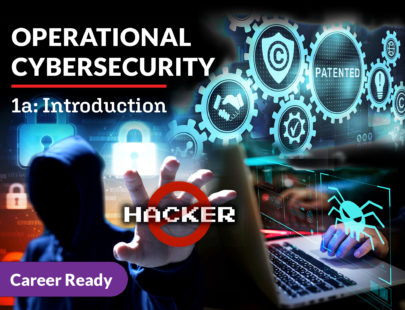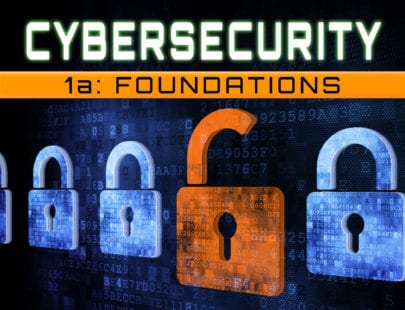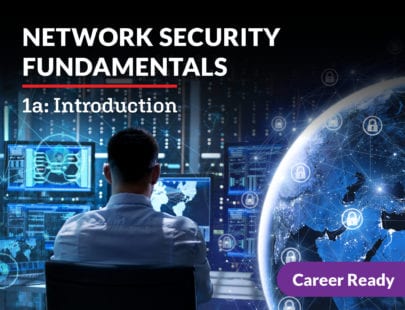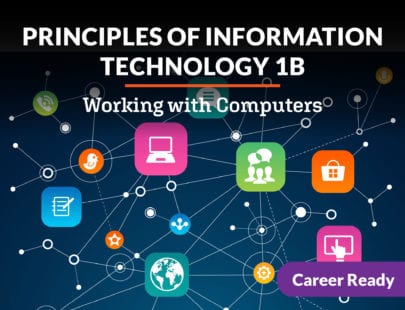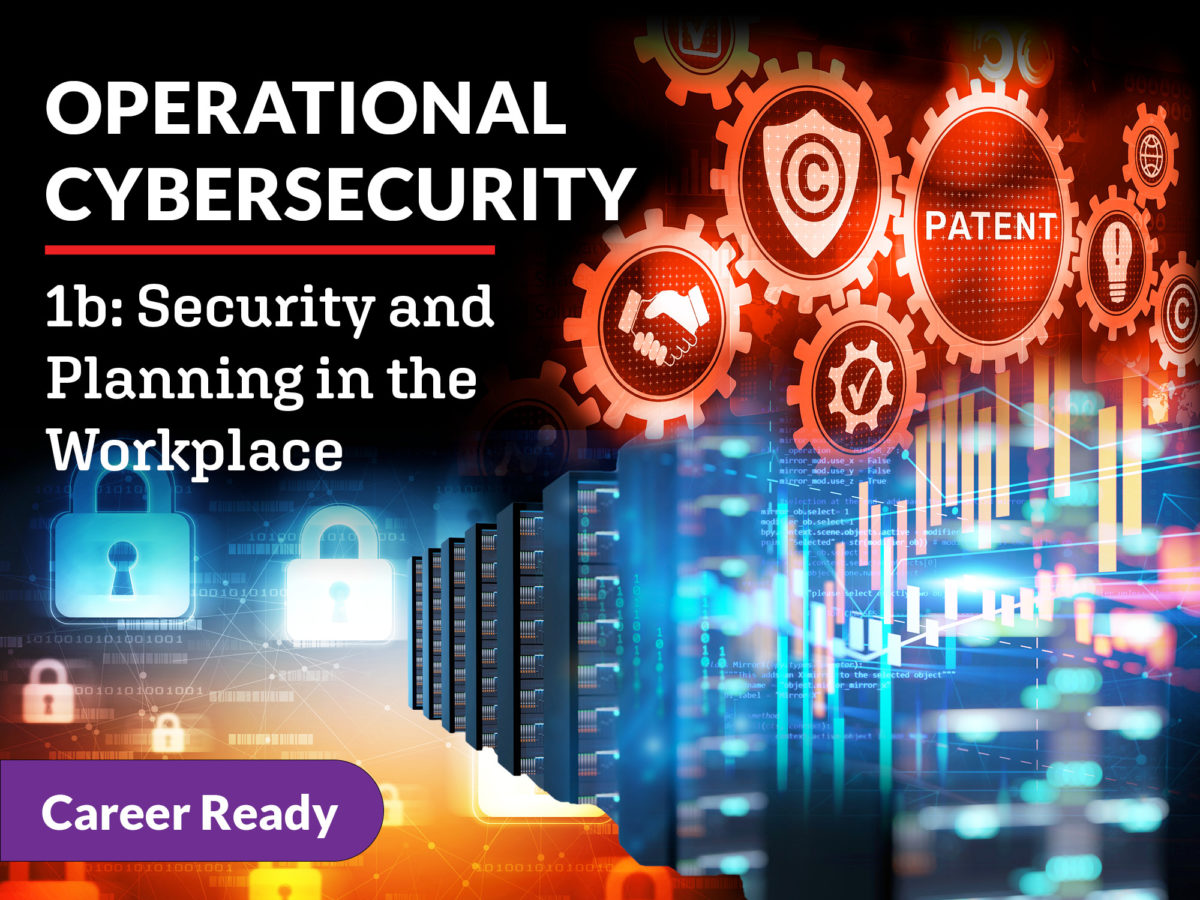
Operational Cybersecurity 1b: Security and Planning in the Workplace
More and more, companies are under attack by malicious cyber attackers compromising the security of sensitive employee, customer, and societal data. In this course, you will dive into data security in the workplace and will learn ways to mitigate cyber threats that lurk in dark corners. You will step into the familiar shoes of CISO, this time at a startup company, making decisions about access and authentication protocols, security planning, and expanding the business in a safe way. Lastly, you will explore real-world security breaches, how they were solved, and step-by-step instructions to setup robust security policies. Let’s continue forging your cybersecurity stronghold against cyber attackers and keep sensitive data secure.
Units at a Glance
Unit 1: Access Control in a Corporate Context
What will you learn in this unit?
- Explain the components that allow a user to be authorized on a network
- Understand access control models and their uses
- Recommend policies to protect against third-party vulnerabilities
- Discuss the 2019 Capital One data breach
Unit 2: Authentication at Work
What will you learn in this unit?
- Explain authentication factors
- Understand how biometrics are used as authentication factors
- Identify protocols used in network-level authentication
- Consider the use of single sign-on (SSO) and the implementation of authentication on switches and routers
- Think about a perfect protocol scenario
Unit 3: Scenarios: Testing and Troubleshooting
What will you learn in this unit?
- Explain the need for continuous monitoring
- Understand the basics of digital forensics
- Describe the vulnerability scan process
- Consider the penetration testing process
- Plan possible post-scan actions
Unit 4: Response and Recovery Planning
What will you learn in this unit?
- Identify the difference between incident response and disaster recovery plans
- Understand the NIST 800-61 incident response framework
- Identify the steps in the Cyber Kill Chain®, MITRE ATT&CK, and Diamond model frameworks
- Respond to a mock security incident
- Conduct a post-incident analysis
Unit 5: Security Awareness and Training
What will you learn in this unit?
- Identify security awareness training frameworks
- Explain various data classification categories
- List examples of good workplace security habits
- Consider positive security habits for Sys Admins
- Understand hands-on learning opportunities in cybersecurity
Unit 6: Ethical Concerns in Cybersecurity
What will you learn in this unit?
- Identify different types of computer crimes and their consequences
- Explain different types of copyright issues in the digital era
- Understand how to handle data ethically
- Consider data laws that are in place in the United States
- Describe best practices concerning ethical behavior on networks and in personal digital activities
Unit 7: Personal Device Security
What will you learn in this unit?
- Define different device ownership models
- Identify various security concerns related to employees bringing personal devices to work
- Explain the purpose of mobile device management (MDM) platforms
- List various MDM polices that can be enforced
- Understand how Cisco Systems selected a new MDM
Unit 8: Gliders Expands
What will you learn in this unit?
- Define the cloud and discuss why an organization may use these types of platforms
- Identify different cloud platform security controls
- Consider cloud application security controls
- Understand cloud security misconfigurations
Required Materials
Physical
- Audio recording device
Software
- Word processing software
- Spreadsheet software
- Proprietary or open-source tool to test for technical vulnerabilities
Optional
- Image editing software
- Presentation software
- Video recording device
